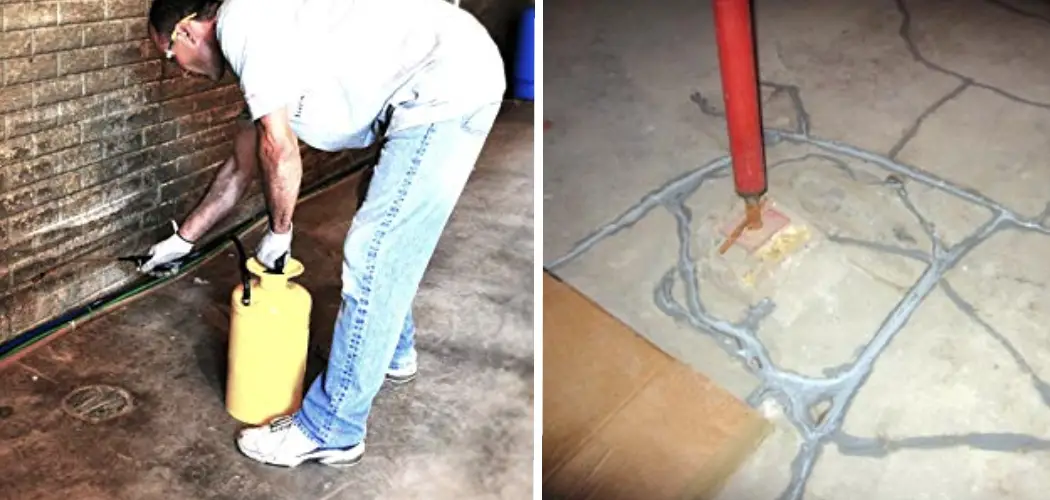You may have a question: does sealing a basement floor reduce radon? The answer is: YES! Sealing your basement floor does reduce radon levels in the home. Radon is a radioactive gas that can cause cancer. According to the U.S. Environmental Protection Agency, it is the second leading cause of lung cancer in the United States.
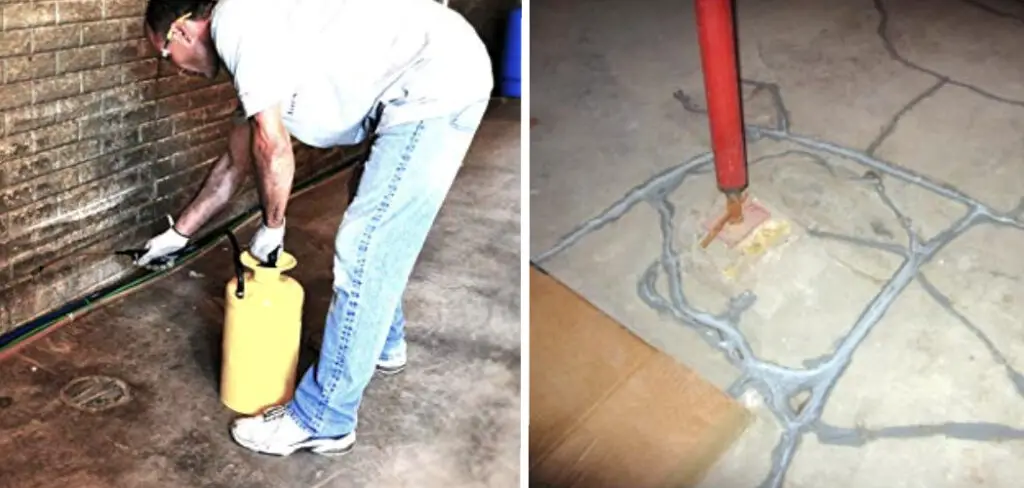
One way to reduce your radon exposure is to seal your basement floor. In this blog post, we will explore whether sealing a basement floor reduces radon levels. We will also look at some methods for sealing a basement floor and discuss the benefits of doing so. Stay tuned!
Why Should You Seal a Basement Floor?
A basement is a great addition to any home. It provides extra storage space, a place for your furnace and water heater, and can even be finished as a bonus living space. However, if your basement is not properly sealed, it can lead to several problems.
Water can seep through cracks in the foundation, causing mold and mildew to grow. The damp environment can also damage stored belongings and may even lead to health problems for the home’s occupants. Sealing your basement floor is the best way to prevent these problems.
A good sealer will create a waterproof barrier that keeps moisture out while allowing the floor to breathe. This will keep your basement dry, mold-free, and comfortable for years to come.
Does Sealing a Basement Floor Reduce Radon?
Basements are notorious for being damp and musty, but did you know that they can also be dangerous? Radon is a colorless, odorless gas that is found naturally in the environment. However, it can build up to harmful levels in enclosed spaces like basements.
Prolonged exposure to high radon levels can cause lung cancer, so it’s important to reduce radon levels in your home. One way to do this is to seal the basement floor. By creating a barrier between the soil and the living space, you can help to prevent radon gas from seeping into the basement.
In addition, sealing the floor will also help to improve the basement’s appearance and make it easier to keep clean. As a result, sealing the basement floor is an effective way to reduce radon levels and create a safer, more comfortable living space.
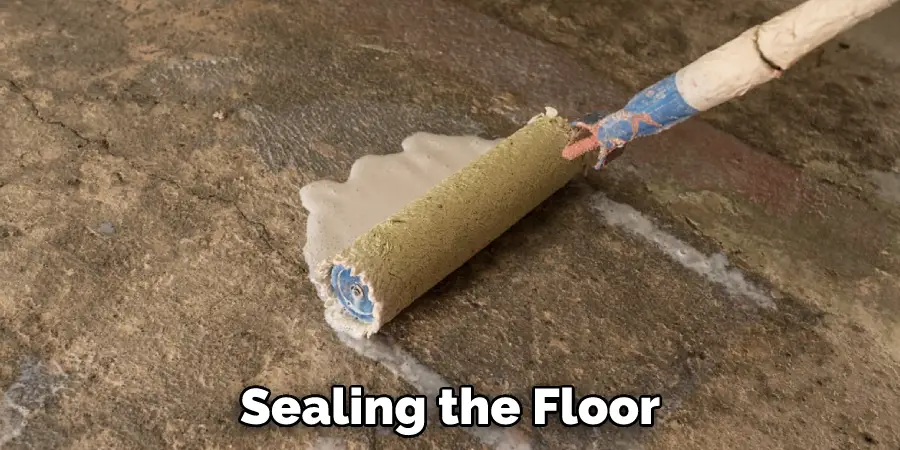
Things You Need to Know Before Sealing a Basement Floor to Reduce Radon
What Is Radon?
Radon is a radioactive gas that is formed from the breakdown of uranium in soil, water, and rock. It is present in all 50 states and can be found in both indoor and outdoor air. Exposure to radon gas can cause lung cancer, and it is the leading cause of lung cancer among non-smokers.
What Are the Health Risks of Exposure to Radon?
Exposure to radon gas can cause lung cancer, and it is the leading cause of lung cancer among non-smokers. Radon gas is estimated to cause 21,000 lung cancer deaths each year in the United States.
How Can I Test for Radon?
There are two main ways to test for radon: passive devices and active devices. Passive devices, such as charcoal canisters, absorb radon gas over time and then need to be sent to a laboratory for analysis. Active devices, such as electronic monitors, measure radon gas levels continuously and provide results immediately.
How Do I Know if My Home Has High Levels of Radon?
If you live in an area with high levels of radon in the soil, there is a good chance that your home also has high levels of radon. Homes built on bedrock or have to crawl spaces are more likely to have high levels of radon than homes built on slab foundations. Testing your home is the only way to know if you have high radon levels. If testing reveals a problem, sealing your basement floors may be one way to reduce the radon levels in your home.
How Can I Reduce the Level of Radon in My Home?
There are several ways to reduce the level of radon in your home, including sealing cracks and openings in your foundation, installing a ventilation system, and installing a radon mitigation system. Sealing the basement floor does provide one way to reduce radon levels, but depending on the size of your home and the level of radon present, it may not be enough.
What Should I Do if My Home Has High Levels of Radon?
If your home has high levels of radon, you should take action to reduce the level of radiation exposure for yourself and your family. You can do this by sealing cracks and openings in your foundation, installing a ventilation system, and installing a radon mitigation system.

5 Benefits of Sealing a Basement Floor to Reduce Radon
1. Radon is a Cancer-Causing Agent
Radon is a gas that is produced when uranium breaks down in the soil, and it can seep into homes through cracks in the foundation. Once inside, it can build up to high levels and pose a health risk to occupants. Exposure to radon is the second leading cause of lung cancer in the United States, and it is estimated to cause 21,000 deaths yearly.
2. Sealing the Basement Floor Can Reduce Radon Levels
Sealing the basement floor is one way to reduce the risk of radon exposure. This will help to prevent radon gas from entering the home through cracks in the foundation. Additionally, sealing the basement floor will also help improve the home’s energy efficiency as it will prevent warm air from escaping through those cracks.
3. Sealing the Basement Floor is Relatively Inexpensive
Sealing the basement floor is a relatively inexpensive way to reduce radon levels in the home. The cost will vary depending on the size of the basement and the type of sealant used, but it is typically a fairly affordable project.
4. Sealing the Basement Floor is Easy to Do
Another benefit of sealing the basement floor is that it is an easy project for most homeowners to do themselves. There are a variety of sealants available at hardware stores, and many can be applied with little more than a brush or roller. However, if you are not confident in doing the job correctly, several companies offer basement sealing services.
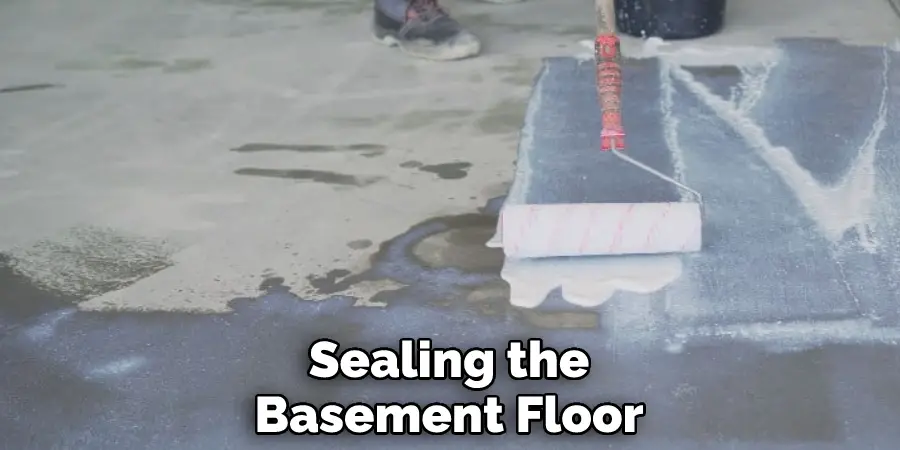
5. Sealing the Basement Floor Can Provide Peace of Mind
Finally, sealing the basement floor can provide peace of mind for homeowners who are concerned about radon exposure. Once the job is done, you can rest assured knowing that you have taken an important step in protecting your family from this potentially deadly gas.
Some Ways to Prevent Radon on Basement Floors
Radon is a naturally-occurring radioactive gas that can be found in any home. While it is odorless and invisible, radon can pose a serious health risk if it builds up to high levels. The best way to protect your family from radon exposure is to test your home and take steps to prevent radon buildup.
You can do several things to prevent radon from entering your home. If you have a basement, ensure all cracks and openings are sealed. You can also install a radon mitigation system to help ventilate your home and keep radon levels low.
Finally, keep an eye on the weather. Radon levels tend to be higher when it is cold outside, so take extra precautions during the winter months.
By following these simple tips, you can help to keep your family safe from radon exposure. Test your home regularly and take action if high radon levels are found. By taking these steps, you can help to create a safe and healthy environment for your family.
Does Airflow Reduce Radon?
Radon is a gas that is found naturally in the environment. Uranium’s decay produces it, which can be found in rocks, soil, and water. Radon can also enter homes through cracks in the foundation or other openings. Once inside, it can build up to high levels and pose a health risk.
There are various ways to reduce radon levels in homes, one of which is to improve airflow. Good airflow helps to dilute radon concentrations and prevent them from reaching dangerous levels.
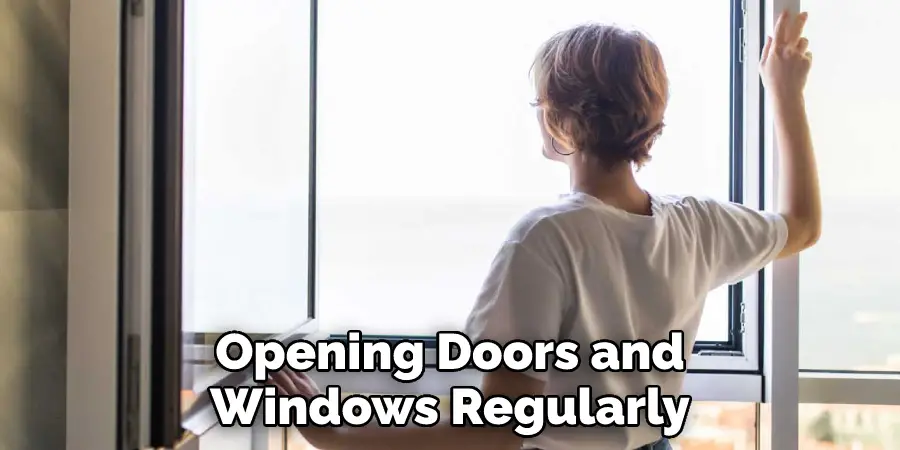
In addition, opening doors and windows regularly can help to reduce radon levels by allowing fresh air to circulate. As a result, improving airflow is an effective way to reduce the risks associated with radon exposure.
Conclusion
The answer to does sealing a basement floor reduces radon is yes! Sealing your basement floor with an impermeable material like epoxy can help prevent radioactive gas from entering your home. While it does not completely solve the issue, it significantly reduces the amount of radon in your home.
It is also recommended to install a radon mitigation system as an extra precaution. Ultimately, sealing your basement floor does reduce the presence of radon in your home and can help keep you and your family safe.

